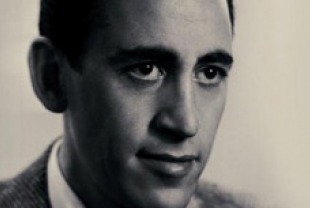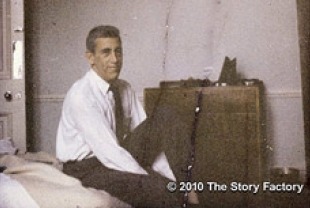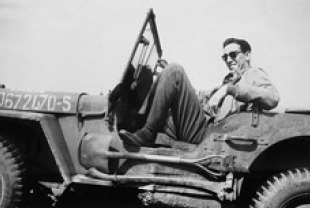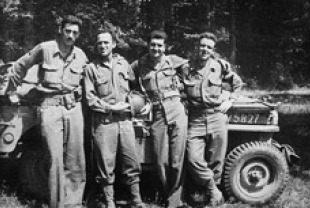Catcher in the Rye (1951) by J. D. Salinger has sold 60 million copies and still sells 250,000 copies a year. Critics raved about the writing in the book and adolescents all over the world identified with the cocky, rebellious, and angry protagonist Holden Caulfield. Shane Salerno, who wrote and directed this ambitious and lengthy documentary, has respect for Salinger's creativity and insights into the dark sides of human nature but also does not hesitate to go for the jugular.
Salerno presents material from more than 200 interviews with other literary figures, critics, colleagues, fans, paramours, and movie stars as he puts together a portrait of a writer alienated from the wealth of his parents, arrogant and hostile toward other fiction writers of his generation, and profoundly shattered by his experiences in World War II — especially the landing on Normandy Beach during the Allied invasion and the liberation of the Nazi death camps.
Salerno peddles the idea that Salinger's emotional difficulties were brought on by post-traumatic stress disorder after returning home. The writer is presented as a weird fellow who had a penchant for falling in love with women decades younger than himself. This begins with a failed affair with Oona O'Neill, who rejected him in order to marry Charlie Chaplin. Others included Jean Miller — a teenager he met at a Florida beach resort, and writer Joyce Maynard, who was 18 when he started courting her. He eventually abandoned both women in cruel fashion.
After the incredible success of Catcher in the Rye, Salinger fled the spotlight in New York City and settled down in New Hampshire where he died at the age of 91 in 2010. This documentary shows how Salinger spent many of his remaining years hunkered down in his writing bunker. According to Salerno, he stipulated in his will that Catcher in the Rye never be made into a movie. There is a segment in the film commenting on how both the killer of John Lennon and the man who tried to assassinate Ronald Reagan were influenced by character of Holden Caufield in the book. The filmmaker seems to be suggesting that these events further contributed to Salinger's distrust of the media.
One thing we learn from the film is that Salinger was very interested in the Vedanta religious philosophy. If and when his writing on this subject is released, it will be interesting to see how both critics and fans respond to his focus on spiritual matters.



